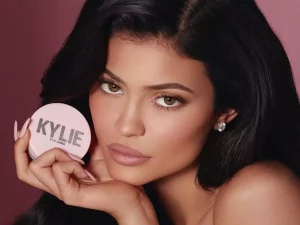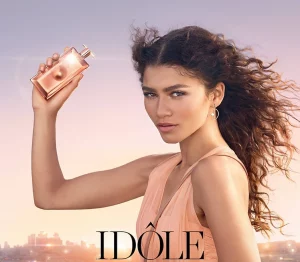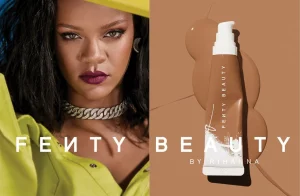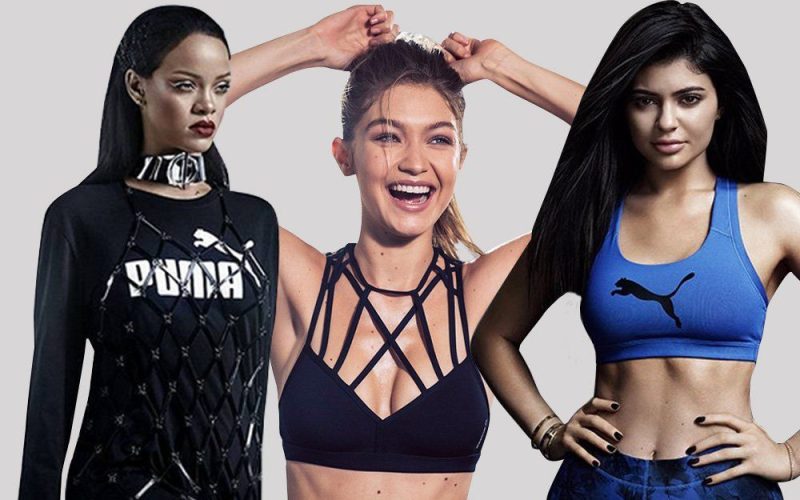Introduction
Celebrity endorsements have long been a cornerstone of marketing, but the digital era has dramatically reshaped how they function. From traditional TV commercials to influencer-driven campaigns on social media, the transformation has been remarkable. This article explores the evolution of celebrity endorsements, the impact of digital platforms, and the trends shaping the future.
The Rise of Traditional Celebrity Endorsements

Before the digital age, celebrity endorsements were mostly done through TV, magazines, and radio. Big companies worked with famous actors, athletes, or musicians to make their products more trusted and popular. These deals were expensive, so only large businesses could afford them.
Key Features of Traditional Endorsements:
- Smaller Audience but Strong Impact: Ads reached fewer people, but they made a big impression.
- Exclusive and long-term Deals: Celebrities often signed contracts to work with one brand for a long time.
- Success Measured Differently: Companies checked sales and asked customers to see if the ads worked.
Benefits of Digital Celebrity Endorsements

Digital celebrity endorsements have many benefits. One big advantage is their reach celebrities can connect with millions of people worldwide with just one post. These endorsements are also more affordable for brands because even smaller influencers can make a big difference. Lastly, digital platforms feel more real and personal, as celebrities can talk to their followers directly, making their promotions seem more genuine.
The Role of Social Media in Celebrity Endorsements

Social media has changed how celebrity endorsements work. In the past, brands controlled these ads, and there wasn’t much interaction. Now, social media lets celebrities talk directly to their fans, making their endorsements feel more real. Celebrities can share their own posts, showing their thoughts and building a stronger connection with followers. This makes people trust the brands they promote more.
The Impact of Social Media on Endorsements

With social media, celebrity endorsements have changed a lot. Platforms like Instagram, TikTok, and YouTube let celebrities connect directly with their fans, giving brands new ways to promote their products.
Benefits of Social Media Endorsements:
- Wider Reach: One post can reach millions of people around the world.
- Cost-Effective: Influencers with small or large followings offer affordable options.
- Authenticity: Talking directly with followers builds trust.
Social media’s quick nature has also led to more short-term deals and viral campaigns, reducing the need for traditional ads.
The Emergence of Virtual Influencers

A new trend in the digital world is the rise of virtual influencers computer-made characters who promote brands. While they aren’t real people, their carefully designed personalities help them attract a lot of followers.
Why Brands Use Virtual Influencers:
- Full Control Over Messages: Brands can manage everything they say.
- No Risk of Scandals: Since they’re not real people, there are no public problems.
- Affordable and Customizable: They can be made to fit any brand’s needs.
The Role of Social Media Stories
Social media stories are now a popular way for celebrities to promote products. These stories disappear after 24 hours, making people feel like they need to watch them quickly. Celebrities often use stories to show behind-the-scenes moments or give quick product reviews. The casual, honest feel of stories makes the promotions seem more real, helping brands connect with their audience in a fun way.
The Importance of Influencer Diversity

In today’s world, people want to see a wide range of celebrities in ads, including different cultures, body types, and lifestyles. Brands that use a mix of diverse celebrities and influencers can reach more people and show they care about inclusivity. This approach helps brands connect with a bigger audience and build a positive image.
The Role of Analytics in Digital Endorsements
Digital platforms have strong tools to track how well celebrity endorsements work. Brands can see how many people saw a post, clicked a link, or bought a product because of an endorsement. This helps brands understand what’s working and what isn’t, so they can improve future ads. Unlike traditional ads, digital endorsements give instant data, making it easier to change strategies quickly.
The Rise of Sponsored Posts

Sponsored posts are a common way for celebrities to promote products online. These posts are marked as ads, which helps keep things clear for audiences. Even though celebrities are paid to promote a product, the post can still feel real if the celebrity truly likes the product. The success of a sponsored post depends on how naturally the product fits into the celebrity’s content.
How Endorsements Build Trust
When a well-loved celebrity promotes a product, it can help people trust the product more. Fans are more likely to try something if they see someone they admire using it. However, trust only works if the endorsement feels real. Celebrities who share honest experiences with a product often have more influence than those who promote something without a genuine connection to it.
The Shift from Traditional to Digital Endorsements

In the past, celebrity endorsements were only seen in TV commercials, billboards, and print ads. These types of ads were expensive and took a lot of work. Today, platforms like Instagram, YouTube, and TikTok allow brands to reach their audience directly online. The shift from traditional media to digital media has opened up new opportunities, making endorsements available to more brands, big and small.
The Influence of Micro-Influencers
Now, celebrity endorsements don’t just come from big stars. The rise of micro-influencers—people with smaller but very engaged followings has become a popular trend. These influencers have a closer relationship with their audience, which makes their endorsements feel more real. Brands can now reach specific groups by working with influencers who have a loyal fan base, even if their audience is smaller than that of big celebrities.
The Power of Visual Content

One big change in digital endorsements is the use of visual content. Celebrities can now show products in creative ways through photos, videos, and live streams. Platforms like Instagram and TikTok let brands see how products are used in real life, giving followers a more authentic look at how a product fits into a celebrity’s life. This kind of content feels more personal and real, which helps connect with audiences today.
Instant Feedback and Real-Time Engagement
Another advantage of digital endorsements is getting quick feedback from followers. Celebrities can talk to their fans in real time by replying to comments, sharing opinions, or promoting products during live events or stories. This makes the endorsement feel more like a recommendation from a friend instead of a regular ad. Real-time interaction helps build a stronger bond between the brand and the consumer.
Brand Transparency and Authenticity

In today’s digital world, people value honesty and transparency. They want to know that the celebrities they follow truly use and believe in the products they promote. If a brand is found to be paying a celebrity to promote something they don’t actually use, the audience can quickly lose trust. That’s why many brands now focus on working with celebrities and influencers who genuinely connect with their products. Honest endorsements feel more trustworthy and can lead to stronger customer loyalty.
The Growth of Collaborative Campaigns
Today, celebrity endorsements are not just about promoting a product they’re about working together with the brand to create something new. Celebrities are increasingly teaming up with companies to design products, launch special collections, or even start their own brands. These collaborations make the endorsement feel more real because celebrities are involved in the product creation. This partnership also lets the brand use the celebrity’s creative ideas, which can lead to unique and exciting marketing opportunities.
Challenges in the Digital Era

While digital celebrity endorsements are powerful, they also have some challenges. One of the main problems is that people are often skeptical. Audiences may question if endorsements are real because they know celebrities are paid to promote products. Another challenge is measuring success it’s hard to track how much a post actually affects sales. Also, if a celebrity gets involved in a scandal, it can hurt the brand they are promoting, which is a risk companies face today.
Key Challenges:
- Consumer Skepticism: People are becoming more cautious about inauthentic endorsements.
- Measuring Success: It’s not always easy to see how effective digital campaigns are.
- Brand Safety: If an influencer behaves badly, it can hurt the brand’s image.
Future Trends in Celebrity Endorsements

Looking ahead, celebrity endorsements will likely keep changing with new technology. We may see more interactive campaigns where fans can engage with celebrity content through virtual or augmented reality. Personalized marketing will also grow, with AI helping brands reach the right people based on their interests. Additionally, celebrities may get more involved in social causes, as consumers want to see brands and personalities that support important issues.
Predicted Trends:
- Interactive Campaigns: Augmented reality (AR) and virtual reality (VR) will let fans interact with celebrity content in real-time.
- Personalization: AI will help brands create endorsements that match specific audience interests.
- Social Impact: Celebrities who promote causes that matter will become more popular.
Analysis Table
| Aspect | Traditional Endorsements | Digital Endorsements |
|---|---|---|
| Reach | Regional or national | Global |
| Engagement | Low | High (real-time) |
| Cost | High | Flexible |
| Authenticity | Perceived | Enhanced through personal content |
| Scalability | Limited | Vast |
Comparative Table
| Category | Traditional Endorsements | Social Media Endorsements | Virtual Influencers |
|---|---|---|---|
| Control Over Messaging | Shared between brand and celebrity | Primarily influencer-driven | Fully controlled by the brand |
| Risks | Scandals involving celebrities | Influencer controversies, fake followers | Minimal |
| Innovation | Limited | Dynamic and evolving | High-tech appeal |
| Reach | Regional/National | Global | Niche yet growing |
Conclusion
The evolution of celebrity endorsements reflects the dynamic nature of marketing in the digital age. From traditional advertisements to influencer marketing and virtual personas, brands have an array of options. While digital platforms offer unparalleled opportunities, the challenges of authenticity and oversaturation necessitate strategic approaches. Looking ahead, technology and personalization will remain at the forefront of this ever-evolving field.












